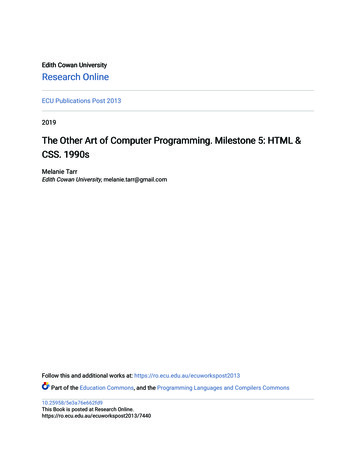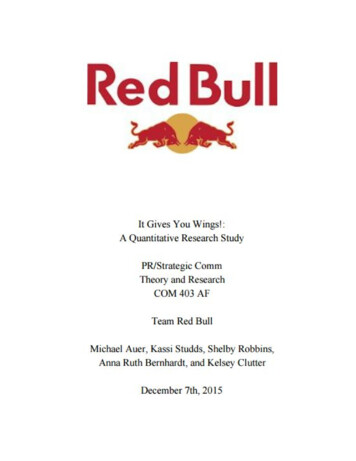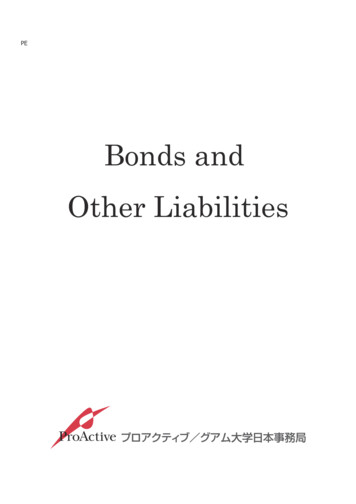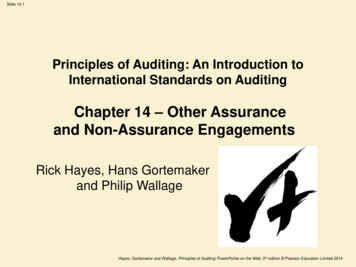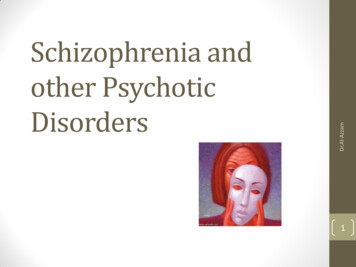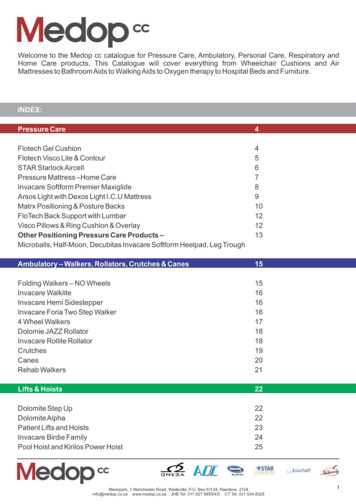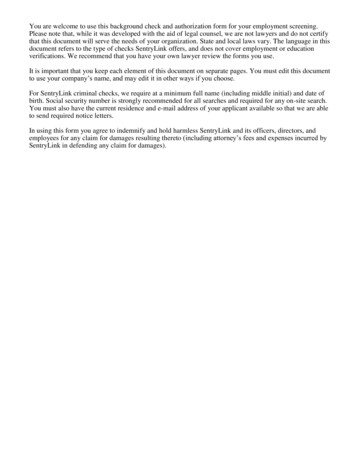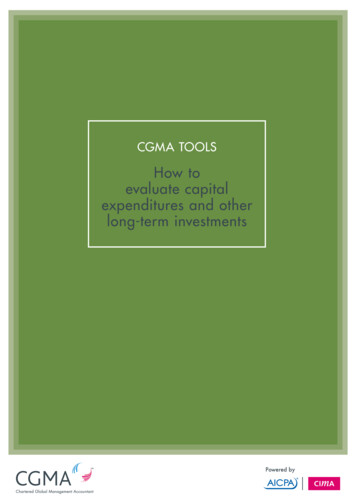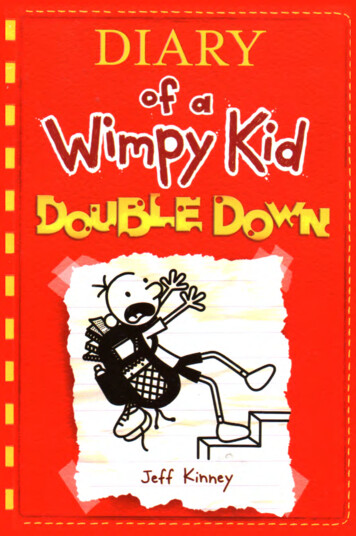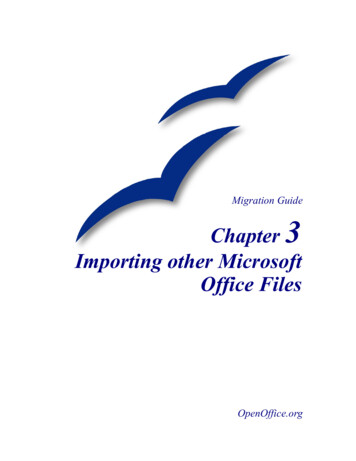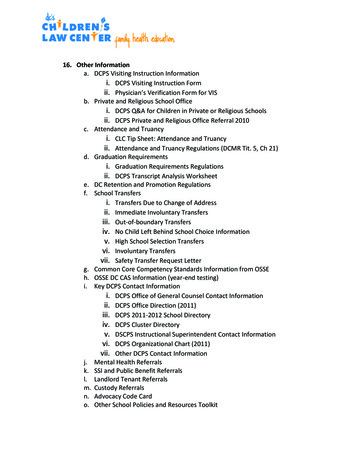
Transcription
16. Other Informationa. DCPS Visiting Instruction Informationi. DCPS Visiting Instruction Formii. Physician’s Verification Form for VISb. Private and Religious School Officei. DCPS Q&A for Children in Private or Religious Schoolsii. DCPS Private and Religious Office Referral 2010c. Attendance and Truancyi. CLC Tip Sheet: Attendance and Truancyii. Attendance and Truancy Regulations (DCMR Tit. 5, Ch 21)d. Graduation Requirementsi. Graduation Requirements Regulationsii. DCPS Transcript Analysis Worksheete. DC Retention and Promotion Regulationsf. School Transfersi. Transfers Due to Change of Addressii. Immediate Involuntary Transfersiii. Out-of-boundary Transfersiv. No Child Left Behind School Choice Informationv. High School Selection Transfersvi. Involuntary Transfersvii. Safety Transfer Request Letterg. Common Core Competency Standards Information from OSSEh. OSSE DC CAS Information (year-end testing)i. Key DCPS Contact Informationi. DCPS Office of General Counsel Contact Informationii. DCPS Office Direction (2011)iii. DCPS 2011-2012 School Directoryiv. DCPS Cluster Directoryv. DSCPS Instructional Superintendent Contact Informationvi. DCPS Organizational Chart (2011)vii. Other DCPS Contact Informationj. Mental Health Referralsk. SSI and Public Benefit Referralsl. Landlord Tenant Referralsm. Custody Referralsn. Advocacy Code Cardo. Other School Policies and Resources Toolkit
http://dc.gov/DCPS/In the Classroom/How Students Are Supported/Visiting Instruction Service
Questions and AnswersServices for Children with Disabilities Placed by Their Parents in Private and ReligiousSchools(REVISED 3-5-10)DCPS PRIVATE AND RELIGIOUS OFFICE (PRO)Early Stages Center1125 New Jersey Ave NW, 3rd floorWashington, DC 20001(202) 698-8037District of Columbia Public Schools (DCPS) is responsible for Child Find activities whichinclude locating, identifying, and evaluating all students with disabilities who are enrolled bytheir parents in private or religious schools in the District of Columbia. This includes childrenwho do not live in the District and whose parents have enrolled them in private schools in theDistrict.The DCPS Private and Religious Office (PRO) manages referrals for parentally placed privateschool students ages 5 to 21. To begin the referral process parents must register their childas non-attending and complete a referral packet. Referral forms are available at the DCPSPrivate and Religious Office (PRO), private and religious schools in the District, five DCPScluster schools, and the PRO website.1. What is Child Find?Child Find refers to the active and continuing efforts of the school division to identify, locate, andevaluate any child, birth to 21 years inclusive, who resides within the jurisdiction of the District ofColumbia and is thought to be a child with a disability. This includes resident children who do notattend public school, but attend private schools in the District of Columbia. It also includes nonresident children whose parents place them in private schools in the District of Columbia.2. How can private schools and parents obtain information regarding the special educationand related services that may be available for their students with disabilities?General information for parents who place their children with disabilities in private schools is availablethrough the DCPS Private and Religious Office. The web- site for the Private and Religious office ishttp://www.k12.dc.us/pro3. What can parents of private school students do when they believe a student needs specialeducation assistance?Parents must first register their child as a non-attending student at the Private-Religious Office (PRO)or the appropriate cluster school. After registering, the parent must submit a completed referral form.Referral forms are available at the previously identified sites as well as at the PRO website and atD.C. private and religious schools. For students who reside in the District of Columbia, PRO will sendthe completed and signed referral packet to the childʼs neighborhood school. For private schoolstudents who do not reside in the District of Columbia, PRO will send the packet to the neighborhoodschool nearest to the private-religious school.
4. Where do private and religious students receive evaluations and services?Once DCPS PRO submits the completed referral packet to the studentʼs school, all screening and anyprovision of special education services will take place at the studentʼs neighborhood D.C publicschool. For private school students who do not reside in the District of Columbia, the neighborhoodschool is the D.C. public school nearest to the studentʼs private-religious school. Parents may contactthe Private and Religious Office if the childʼs neighborhood school is not known.5. How long does it take to find a student eligible for special education services?Once a DCPS school receives a student referral, the neighborhood school must convene a MultiDisciplinary Team (MDT) meeting to determine whether or not the student needs to be evaluated forspecial education. If they determine that assessments are required, the school will complete theassessments and hold an eligibility meeting. The time period for this entire process must not exceed120 days from the date of the signed consent.6. Can consent for evaluations be withdrawn before testing is completed and restarted at alater date?Consent for evaluations may be withdrawn but the school system will retain a file of any testingcompleted up to the point of the withdrawal. A parent may make a referral to restart the testing at anytime in the future. The Local Multi-Disciplinary Team will review the referral and determine whethertesting is warranted.7. Will public school staff be sent to the private school to do the screening? Can the speechand language clinician be sent to the private school?Screenings and speech/language services will be provided within a DCPS school. This is necessarydue to the number of schools, the available resources, and the time required to serve students. Oncall observations and teacher interviews will be available.8. What services are available to a private-religious school student with disabilities?After evaluations are completed, an MDT/IEP meeting is held at the neighborhood school todetermine eligibility. If the student is found eligible for special education, he/she will be offeredplacement at the neighborhood school with an Individualized Education Program (IEP). If the parentdeclines the placement and chooses to have the student remain at the private-religious school thestudent may be eligible for an Individualized Services Plan (ISP) if the services are appropriate for thestudentʼs needs. If the eligible student is not a resident of DC, he/she will be offered an ISP ifappropriate. If the parent prefers an IEP he/she will need to take the documents to the county ofresidence for further assistance.9. What is the difference between an IEP (Individualized Education Program) and an ISP(Individualized Services Plan)?The IEP is a written statement that specifies the individual needs of the child and what specialeducation and related services are necessary to meet those needs. The services are providedthrough the public schools. The ISP indicates the service(s) the student may receive when thestudent attends a parentally-placed private school. A student with an ISP may receive the following
services: speech/language services once a week and occupational therapy consultations twice ayear.10. Can a student receive the same amount of special education service through an ISP as heor she would receive through an IEP?A parentally-placed private school student with a disability is not entitled to receive some or all of thespecial education and related services that the student would receive if enrolled in a public school.The services DCPS offers in an ISP were established in the Statement of Services Agreement. [Seepage 4 of this document for Statement of Services Agreement].11. What services are available to parentally placed private school bi-lingual students with adisability?If the student has been found eligible for special education services, he/she will be offered placementat the neighborhood school with an IEP. If the parent declines the placement and chooses to havethe student remain at the private-religious school the student may be eligible for an ISP.12. If a private school student is determined to be eligible for special education services andthe parent rejects services offered through an IEP, what is the process if the parent laterrequests support?For resident students, the parents would make a request for services by contacting the neighborhoodschool. The IEP/ISP team would convene to determine whether updated information is needed andwhat, if any, services the student would receive. If the parent chooses to enroll his/her child in thepublic school, the IEP will be implemented at the neighborhood school. If the parent decides to havethe student continue at the private school, an ISP may be offered if the services in an ISP areappropriate for the studentʼs needs. ISP services are outlined in the Statement of ServicesAgreement. [See page 4 of this document for Statement of Services Agreement].For non-resident students attending a private-religious school located within the District of Columbia,the parents would contact the D.C. public school closest to the private school and request an ISPmeeting. If the parent wants an IEP for the student, he/she would contact the school district in his orher county of residence.13. Who is responsible for conducting the reevaluation and managing special educationservices for a parentally placed private school student with an ISP?The reevaluation should take place in the school where the student is receiving special educationservices. The school providing services manages the studentʼs ISP.
District of Columbia Public Schools, Office of Special EducationStatement of Services AgreementFor Private-Religious SchoolsHistorical PerspectiveThe District of Columbia Public Schools (DCPS) wants to ensure that all students with disabilitiesreceive special education services, including students attending private-religious schools.A team consisting of representatives from the DCPS Office of Special Education and private-religiousschools was formed in the spring of 2003. The team met on five separate occasions to work togetherin developing the Statement of Services Agreement as well as the Procedures for Parentally PlacedStudents Enrolled in Private-Religious Schools.On October 22, 2003, the DC Public Schools and the Private-Religious Team members held their firstconference. The Private-Religious Team members presented THE STATEMENT OF SERVICESAGREEMENT, as well as the procedures, to the DCPS and the private-religious schoolsrepresentatives and requested their comments.Through teamwork a Statement of Services Agreement for the District of Columbia Schools, Office ofSpecial Education and Private-Religious Schools has been developed.The Individuals with Disabilities Education Act was reauthorized in 2004. The provisions of the newlaw went into effect July 1, 2005. The Private-Religious Steering Committee met in the spring of 2005to review and align the agreement with IDEIA 2004. The revised language in the law states: “EachLocal Education Agency (LEA) must provide services to parentally-placed private school children withdisabilities who attend private schools located in the LEA without regard to where the children reside.”The Private-Religious Steering Committee worked collaboratively to modify the provisions of theagreement. With team effort, the Statement of Services Agreement has been revised to comply withthe changes in the law.Statement of Services (Revision)This document outlines the special education services based on the reauthorization of IDEIA,to be provided by the District of Columbia Public Schools, Office of Special Education (DCPS) forstudents enrolled in private-religious schools. This applies only to students who are residents of theDistrict of Columbia and/or students who live in other jurisdictions who attend private or religiousschools in the District of Columbia. Students meeting these criteria are enrolled by their families orguardians and the tuition is funded by sources other than the DC Public Schools.DCPS will provide services as outlined below:1. DCPS will engage in Child Find activities in locating, identifying, and evaluating children who arelegal residents residing in the District of Columbia, or wards of the District, and students who live inother jurisdictions who attend private or religious schools in the District of Columbia.DCPS will send a copy of the Agreement, information request form and brochure to each privatereligious school. Child Find activities for parentally placed private-religious school students will takeplace at the C.A.R.E. Center located at Shaw JHS, which officially openedJuly 1, 2004.
2. DCPS will collect Child Count data to give an accurate account on the number of students enrolledin private-religious schools in the District of Columbia, to determine the number of children withdisabilities who are parentally placed in private and religious schools that: Seek to obtain a DCPS evaluation for special education Qualify as having a disability Receive services under IDEIA3. DCPS will provide screenings, assessments and multi-disciplinary meetings as determined by theMulti-Disciplinary Team (MDT) to all referred students between the ages of 3-22 within the timeline of120 days, which is comparable to that for the public school students, as long as the students areeither residents or wards of the District of Columbia or students who are residents of otherjurisdictions who attend private-religious schools in the District of Columbia.4. DCPS will provide the following service only for students attending private and religiousschools in the District of Columbia:4a. Per the agreement, DCPS has designated a liaison for private-religious schools.4b.Speech and language services will be offered to eligible students, not to exceed one (1)hour per week. Services will be provided at identified schools within the District of Columbia.4c. Consultative Occupational Therapy will be provided for eligible students for no more than(2) school-based consultations per school year. The Occupational Therapist will also availableby phone if necessary.5. The delivery of services will be determined with flexibility to best serve each eligible student bydetermining how, where, and by whom special education services will be provided.Considerations include, but are not limited to: Services provided at the private-religious schools; Services provided at DCPS neighborhood schools; Negotiations with individual schools to develop a creative delivery service system.6. A Free Appropriate Public Education (FAPE) will be offered to eligible students and an IEP willbe developed. If parents decide to continue enrollment in the private-religious schools,Individual Service Plans (ISP) will be developed only for services specified in the agreement.7. The amount spent on special education services for private and religious school children will beproportionate to the amount of federal funds available consistent with IDEIA.8. DCPS will maintain and provide data as requested to private and religious schools consistent withIDEIA.9. DCPS and the private-religious schools will maintain an ongoing dialogue related to theimplementation of this agreement through designated liaison representatives.10. The private-religious schools agree to work together with DCPS to advise all appropriate faculty,administrators, staff and parents of the availability of service and the procedures for obtaining these
services. DCPS will inform all DCPS principals, administrators, and local school staff.11.DCPS will hold an annual conference with input from representatives from private-religiousschools.12.Any service that is not explicitly delineated above is not provided by DCPS to private and religiousschool students under this agreement.13.This agreement does not apply to students whose parents have chosen to home-school theirchildren.Revised March 5, 2010
CLC TipT SheetAtttendancce and TruancyTyPParent/Caaregiver ResponsiibilityÎ It is the responsibbility of the parent, guarrdian (or perrson who haas custody orr control of a minor)to plaace minors whow will be 5 years old ono or before September 30th of the current school yearin an educational institution (whether it be public, private, indeppendent, or parochial scchool, oron). DC Codee § 38‐202(a).private instructionteen‐year oldo minors whow are “acttually, lawfullly, gainfully, and regularly employed” mayÎ Sevenbe allowed flexibble school hoours. DC Codde § 38‐202(c). However, flexible school hours dod notmeann that the chhild will be excused entirrely from reggular attenddance, or exccused to the extentthat iti may jeopaardize graduaation. DC Coode § 38‐2022(c).WWhatis ana absencce?Î Missiing any part of a school day withoutt a valid excuuse is presummed to be ann unexcuseddabsennce. 5 DCMR §A2102.1.WWhatis a valid exccuse?Î Pursuuant to 5 DCCMR §§ A21002.2. and A2102.3, each educational institution should havee its ownlist off what consttitutes an accceptable absence, which should be published and made avvailableto parents and sttudents, andd should include the folloowing:o Illness or other bona fide medical cause expeerienced by thet student;;o Exclusion, by direction of the authorities of thhe District ofo Columbia, due to quarrantine,contagiouus disease, innfection, infestation, or other condition requirinng separatioon fromother studdents for meedical or heaalth reasons;o Death in thet student’s family;o Necessityy for a studennt to attend judiciary orr administrattive proceeddings as a party tothe actionn or under suubpoena;o Observannce of a religious holidayy;o Lawful suspension or exclusion frrom school byb school authorities;o Temporarry closing of facilities or suspension of classes due to severee weather, officialoactivities, holidays, malfunctioninmng equipmennt, unsafe orr unsanitary conditions, or othercondition(s) or emerggency requirring a school closing or suspensionso classes;ofo Employment or otherr volunteer workwapprovved by the scchool, providded that thee studentis seventeeen (17) years of age, annd provided further thatt any excused absences underuthis paraggraph shall notn adverselyy impact thee student’s academicaperformance oro timelygraduatioon;o Failure off the District of Columbiaa to provide transportattion in cases where the DistrictDof Columbbia has a leggal responsibbility for the transportation of the sttudent;o Medical oro dental apppointments forf the student; and
o An emerggency or other set of circcumstances approved byy an LEA, inddependent, privateor parochhial school inn conformance with published policiies distributeed to parentts andguardianss.Î Parennts/guardianns are requirred to indicaate in writingg reasons for a student’ss absence, innadvannce if possibble. 5 DCMR §A2102.4.AAttendannce RecorrdÎ All teeachers are requiredrto keepkan accuurate daily attendance record. DC Coode § 38‐203(a).Schoools/private instructors area required to report too the Board ofo Educationn any absenccesexceeeding 2 full daysdor 4 hallf days “in anny school month,” alongg with reasons for the abbsences.DC Coode § 38‐203(b).CConsequeencesÎ “Uneexcused latenness for schoool or class” is listed as a “Tier 1” beehavior in DCCPS’ disciplinnaryschemme, which inncludes behaaviors whichh are “insuboordinate or causecminor disruptions to theacadeemic environnment but dod not involvve damage too property, self,sor otheers.” 5 DCMRR§B25002.1(a). “Uneexcused abssence from class”cas well as “unexcuused absencee from schoool” arelistedd as “Tier II” behaviors. 5 DCMR §B‐‐2502.2(a). AccordingAtoo 5 DCMR §§§ B2502.1(b)),B25002.2(
DCPS Organizational Chart (2011) vii. Other DCPS Contact Information j. Mental Health Referrals k. SSI and Public Benefit Referrals l. Landlord Tenant Referrals m. Custody Referrals n. Advocacy C
